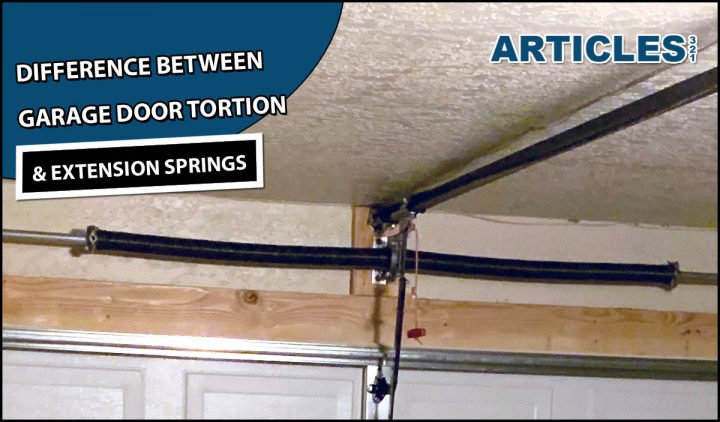Difference between garage door torsion and extension springs
If you are searching for garage door springs it’s likely you’re installing a new garage door or you may be replacing old worn or broken springs. Garage doors usually have 1 of 2 designs of garage door springs, torsion garage door springs and extension garage door springs. This post should help you understand the difference between garage door torsion and extension springs.
Torsion Spring Advantages
On Track Garage Service sells and installs new garage doors, and use torsion spring in most installations. This includes commercial door installations for localized businesses. It is a rare circumstance when we will need to use extension springs. For instance, an inability of using rear torsion springs or lack of headroom. Below are some reasons torsion springs have gained popularity, and why we think they are the better choice:
- When operating the door, torsion springs do not extend fully like extension springs. Extension springs will expand fully, then contract during operation of overhead doors. Meanwhile, torsion springs turn.
- Torsion springs last longer, and sturdier. Although torsion springs are not more expensive, they tend to last longer, up to 20,000 cycles. Extension springs commonly last up to 10,000 cycles. For instance, if you open the garage door an average of 4 times per day, extension springs last roughly 7-year. That means torsion springs can last up to twice as long.
- Torsion springs provide controlled motion. Jerking motions can be a result of extension springs. The tension level could be high when opening the door, and once tension is released, the door opens at a faster rate. Using torsion springs allow for a controlled and steady motion when opening and closing the garage door. This provides long-term control of motion and helps maintain proper door balance. When garage doors jerk, it can result in needing adjustments. When your garage door needs an adjustment or is out of alignment, it tends to wear more and may even lead to damage of other parts.
- Extension springs need additional parts. When additional parts are involved, there is a higher risk of things going wrong. For instance, extension springs require sheaves that need a longer cable. Meanwhile, torsion springs are easier to maintain and lubricate. Also, extension springs have additional parts that can wear down.
- Using torsion spring lowers the wear and tear on the operator. Overhead door operators are able to properly do its job when using torsion springs, without causing additional wear or needing extra power for functioning as extension springs. This means the operator will not need to work as hard for opening and closing the garage door due to having a better balance due to a controlled motion. This is able to provide fewer issues with the operator while performing longer and better.
- When extension springs break down, it can cause more danger compared to torsion spring breakage. When hearing about extension springs breaking, it often results in major damage. For example, we have heard about it flying through car windshields, garage windows, and even personal injury and death. When torsion springs break, it won’t fly off. You might experience a loud bang, but torsion springs remain on the shaft. When springs break, it is a major issue; do not wait to contact your garage door professionals if you are in need of assistance or got questions.
Garage Door Spring Conversion
Another item to take into consideration when having overhead or garage doors that currently use extension springs is that we can help convert them to torsion spring. This means that despite the type of garage door springs you have in your home now you can take advantage of safer and more durable torsion springs.

Now that we understand the difference between the workings of extension springs and torsion springs, we must ask – which is better for use in a garage door?